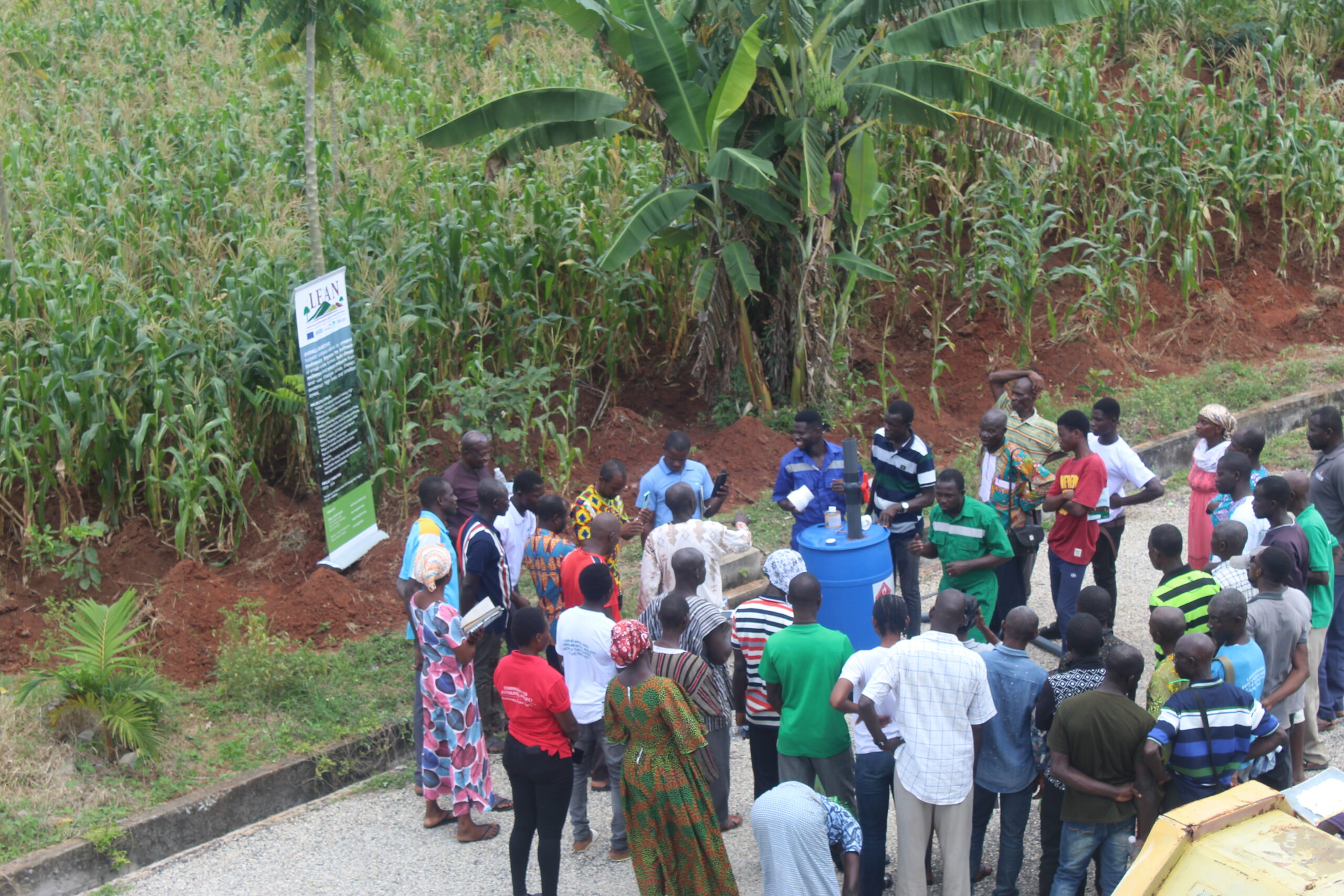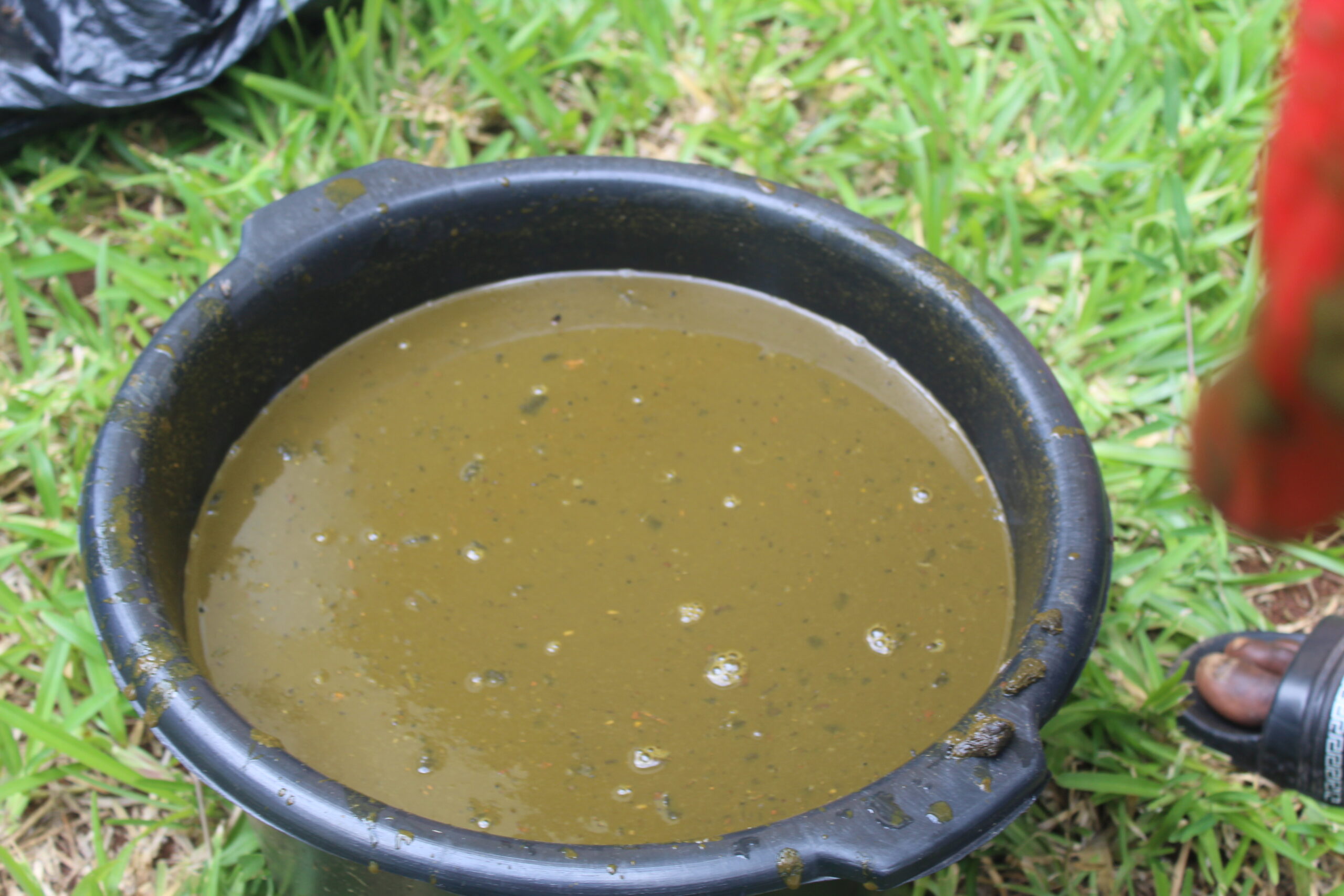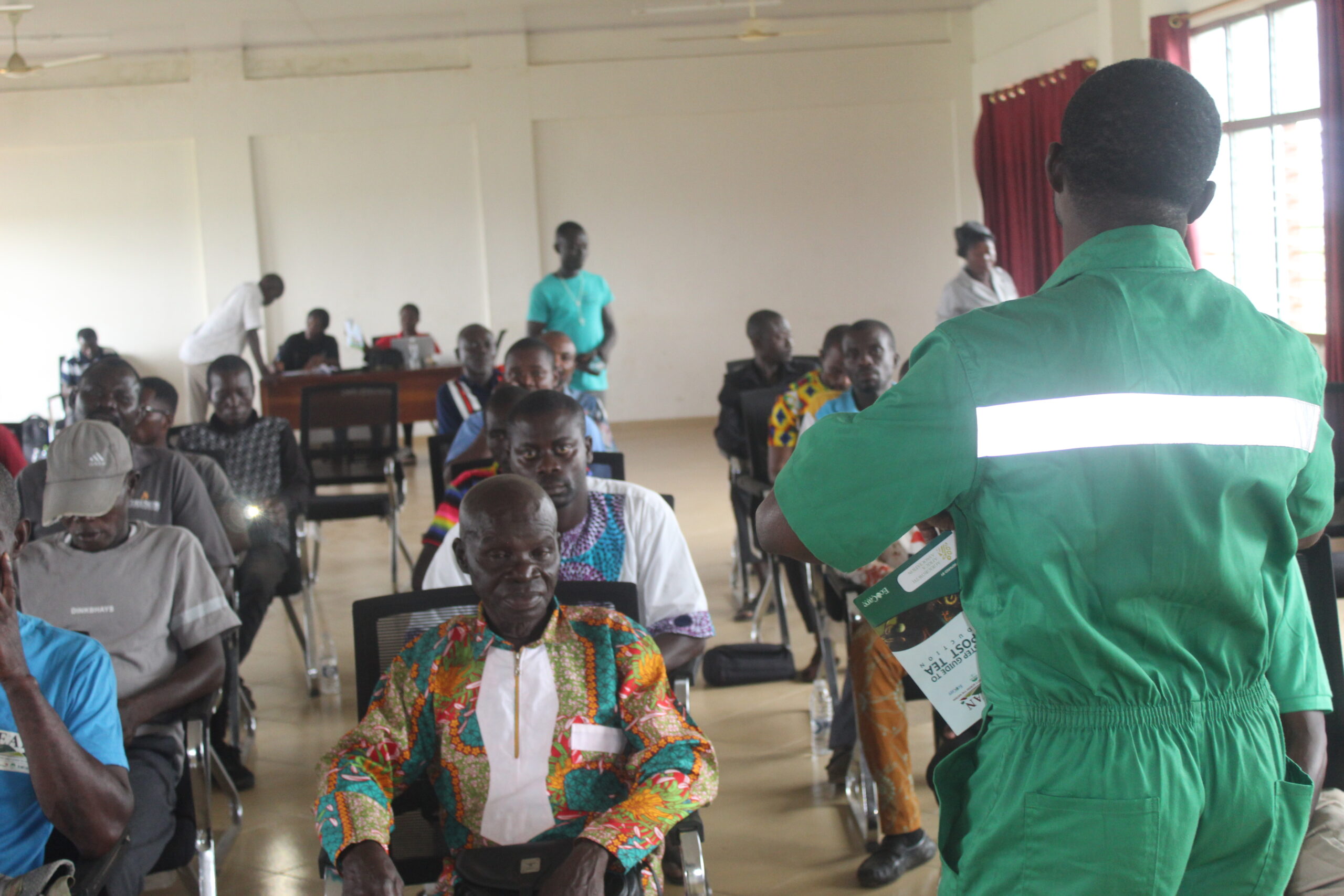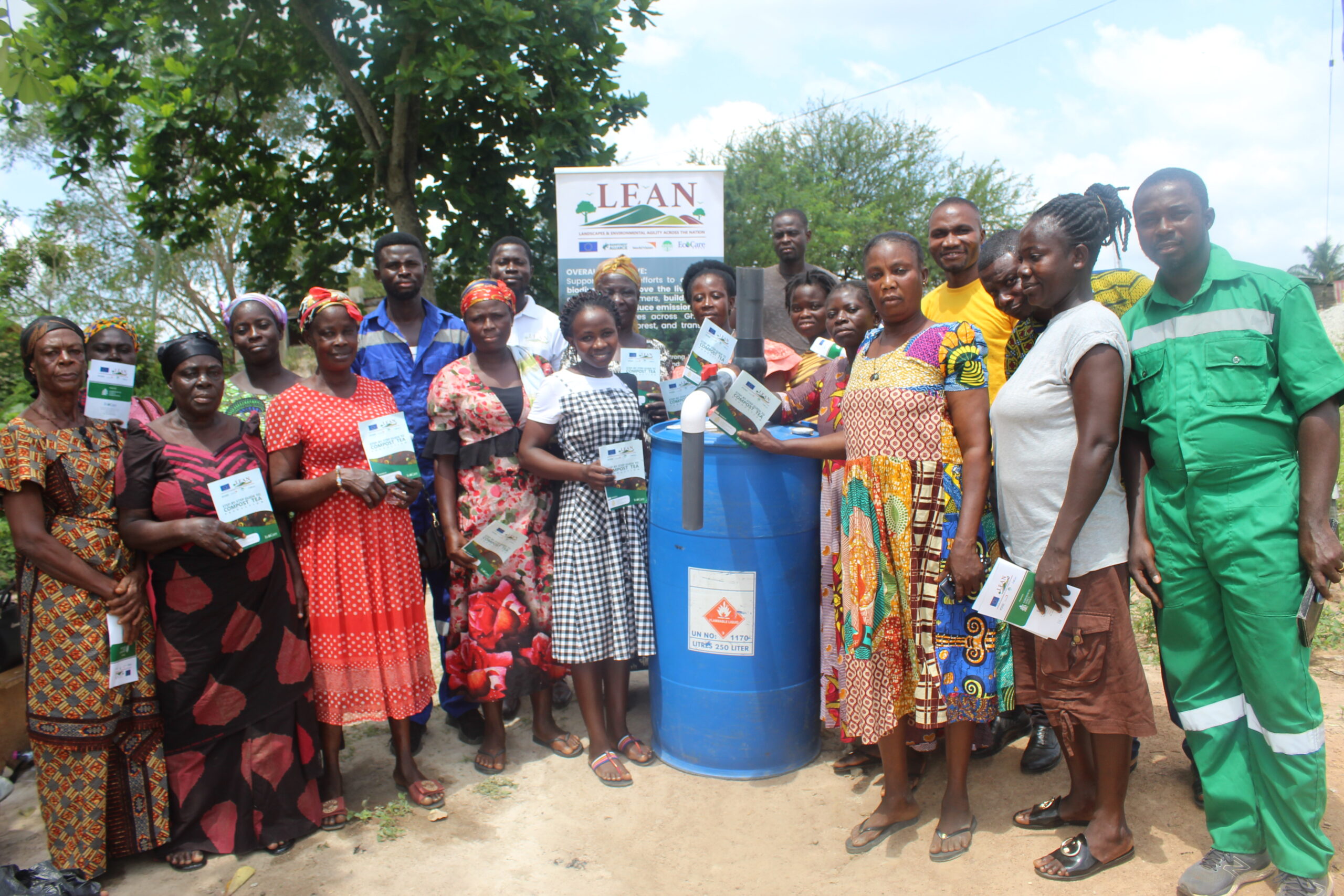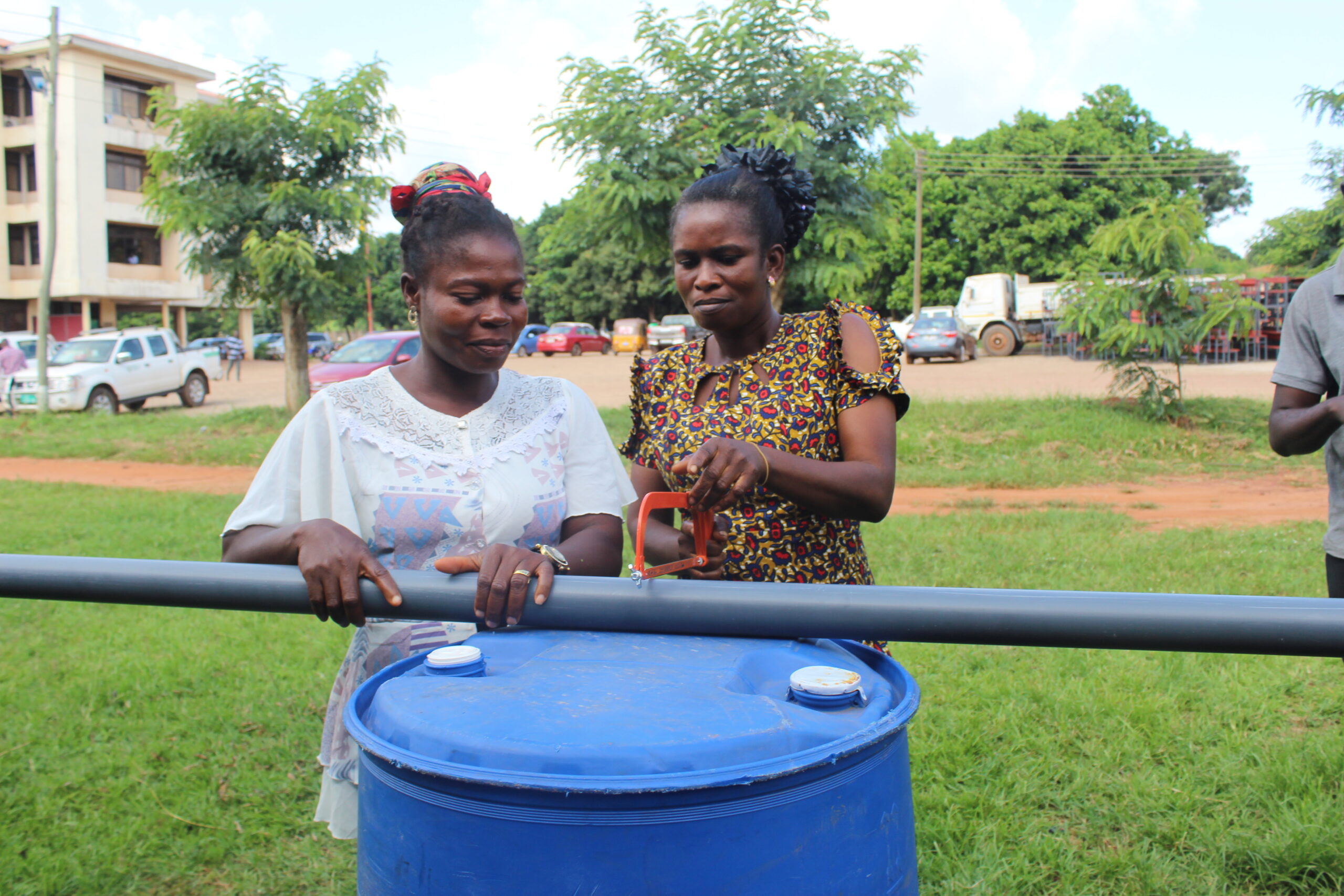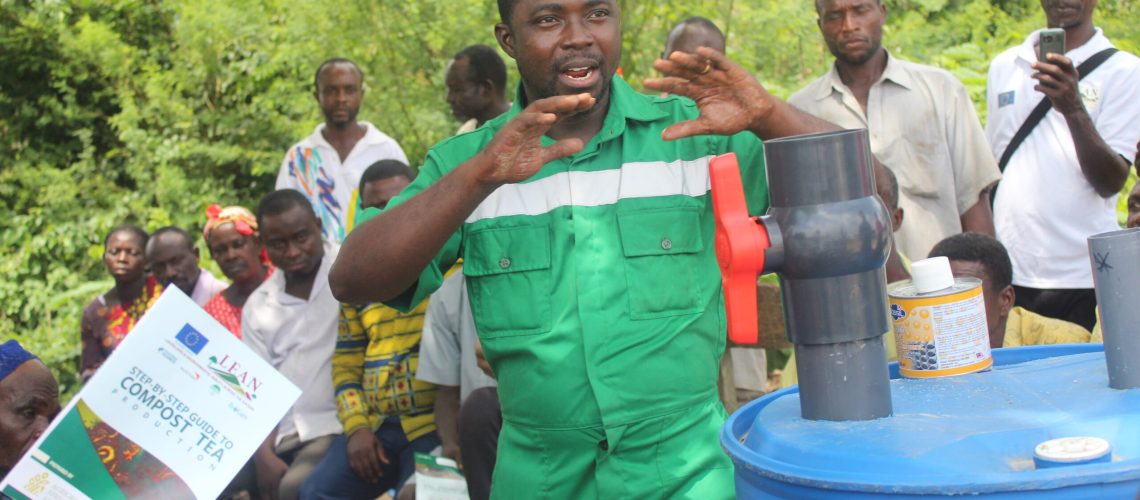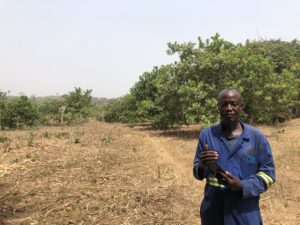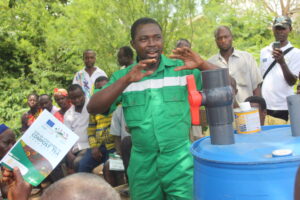In a bid to transform the agricultural landscape and empower smallholder farmers, EcoCare Ghana has trained 150 small farmers from the transition landscape of Ghana in the production of organic compost tea. This initiative is part of the broader European Union-funded Landscapes and Environmental Agility across the Nation (LEAN) Project, which seeks to equip smallholder farmers with the skills and knowledge necessary to implement sustainable land management, reforestation, and improved farming practices. The goal is to increase yields, ensure food security, and combat climate change.

Speaking at the trainings, Mr. Enock Okyere, the project officer at EcoCare Ghana, emphasised the significance of this endeavor. “Teaching farmers to create their own organic fertilisers is crucial to reducing reliance on harmful inorganic fertilisers, which adversely affect our health and contribute to greenhouse gas emissions, exacerbating climate change and soil degradation. The rising prices of inorganic fertilisers, coupled with increasing costs of other farming inputs, challenge the viability of agriculture and perpetuate poverty among farmers in the region” he noted.
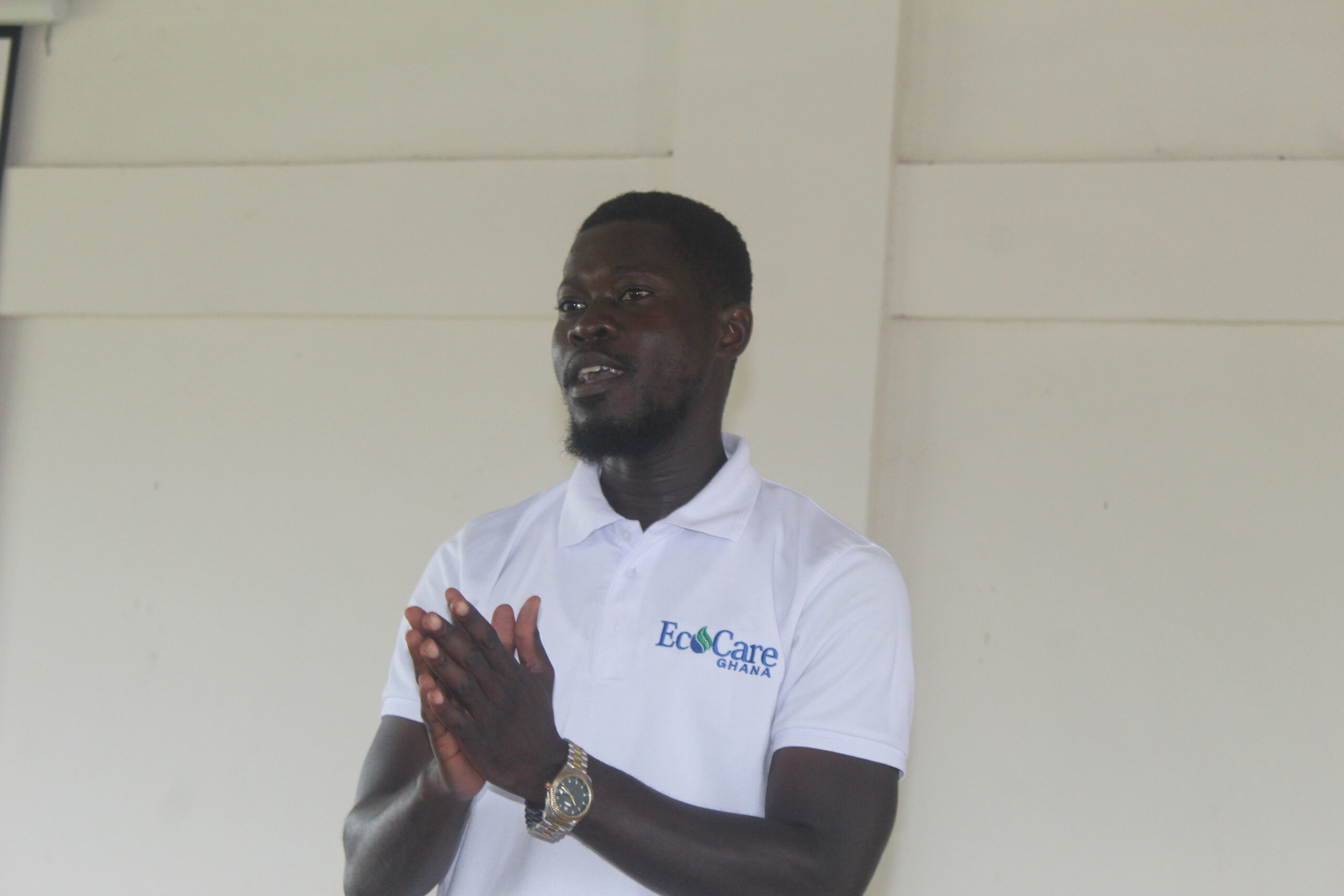
The training was conducted across three districts: Techiman Municipal, Offinso North, and Offinso Municipal Assembly, involving 50 farmer gang leaders from ten communities within each district. The training methodology included both classroom instruction and hands-on practical experiences at selected sites, enabling farmers to not only learn but also apply their newfound knowledge. These trained leaders are now expected to pass the torch, sharing their expertise with fellow farmers in their respective gangs.
Mr. Elison Owusu Fordjour, the compost tea production trainer, emphasised the importance of sustainable agricultural practices. He stated, “Given the detrimental effects of climate change, it’s important for farmers to embrace eco-friendly methods to enhance resilience and improve their livelihoods.” Using compost tea as a fertiliser can help rejuvenate degraded soil, increase crop yields, mitigate climate change, and ultimately enhance the well-being of farmers and consumers.
Madam Olivia Akondolomah, a trainee from Asotwe in the Offinso North District, shared her experiences with inorganic fertilisers. She mentioned that despite using a significant amount of inorganic fertilisers, her two-acre maize farm yielded only a small number of bags. She expressed her optimism, saying, “This training will be a game-changer for us, helping reduce production costs and increase our yields. We have cow dung and other animal droppings in abundance in our communities, we don’t need to purchase them. This will help us save money!”
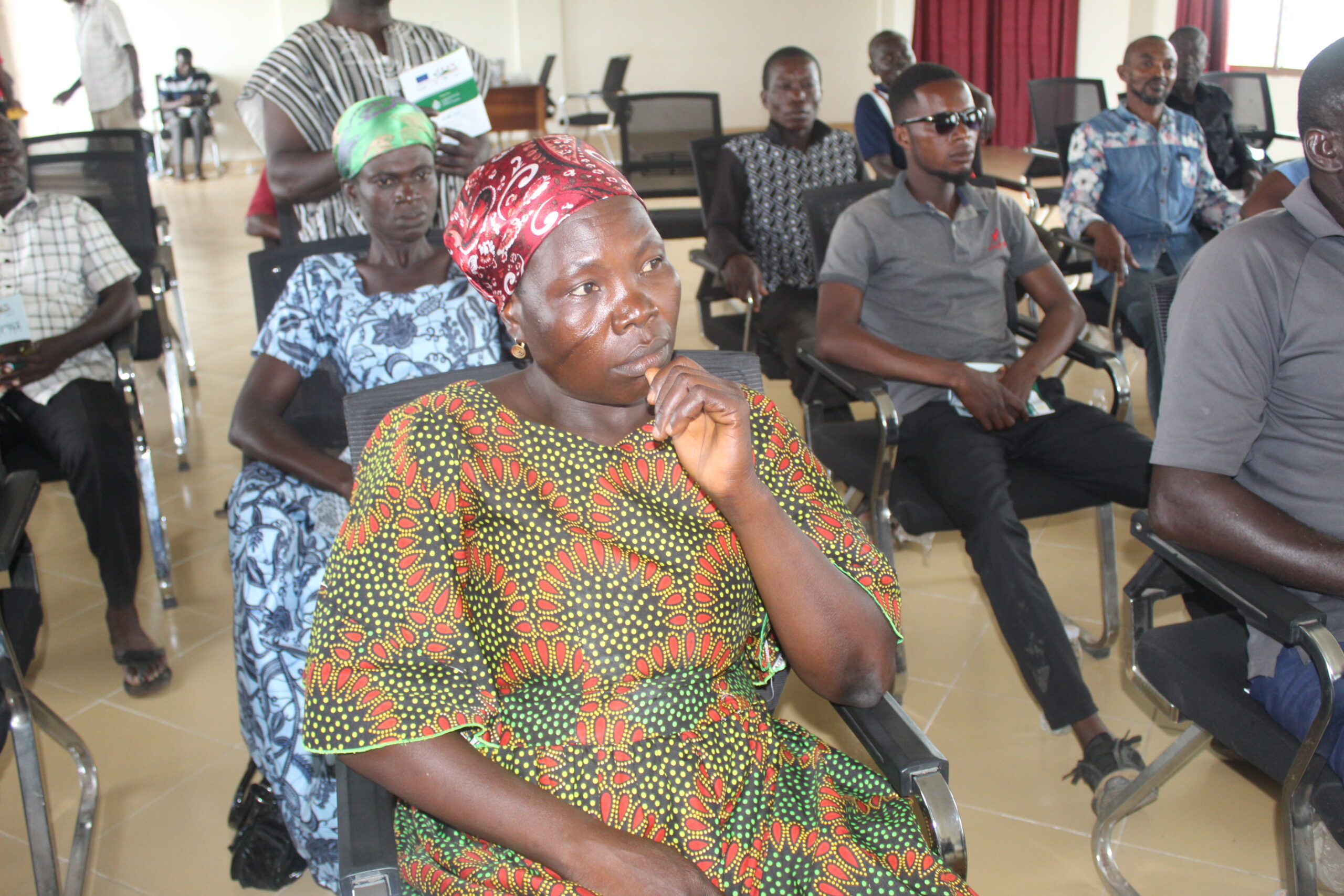
The LEAN project seeks to directly support national efforts to conserve biodiversity, improve the livelihoods of small-scale farmers, build climate resilience, and reduce emissions from land-use changes across Ghana’s savannah, high forest, and transition zones. By empowering farmers with the skills and knowledge necessary to create organic fertilisers, EcoCare Ghana and the LEAN Project are taking significant steps towards improving agricultural practices while also safeguarding human health, preserving the environment, and enhancing the livelihoods of farmers.
